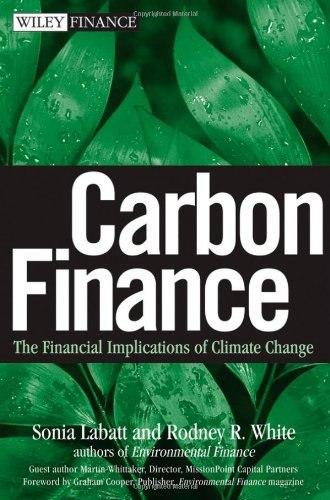
Carbon Finance : The Financial Implications of Climate Change
On Sale
$7.99
$7.99
After decades of debate, there is now a clear scientific consensus that climate change is occurring and that human activities are a major contributory factor. Furthermore, the groundbreaking report from Sir Nicholas Stern, released in October 2006, shows clearly that it is a serious economic threat, not just a scientific concern. In his comprehensive report for the U.K. government, the former chief economist at the World Bank describes climate change as ‘‘the greatest market failure the world has seen.’’ Unabated climate change could cost as much as 20 percent of global gross domestic product (GDP), he estimates. By acting promptly to avoid the worst impacts of global warming, however, he says the cost could be limited to around 1 percent of GDP. A variety of responses are required, including education and awareness raising, improvements in energy efficiency, and measures to stimulate the deployment of low-carbon technologies. But, Stern says, a key policy requirement is carbon pricing—assigning a cost to emissions of greenhouse gases—through taxation, regulation, and/or emissions trading. Thanks to the Kyoto Protocol, tools for pricing carbon already exist. The 1997 treaty, which eventually came into force in February 2005, created two mechanisms—Joint Implementation (JI) and the Clean Development Mechanism (CDM)—to encourage investments in projects that reduce carbon emissions in industrialized and developing countries, respectively. In addition, it imposed binding emissions limits on industrialized nations and set out the rules for a global market in emission reductions. Such a market should ensure that the cheapest reductions are targeted first, thus minimizing the overall cost of tackling global warming
